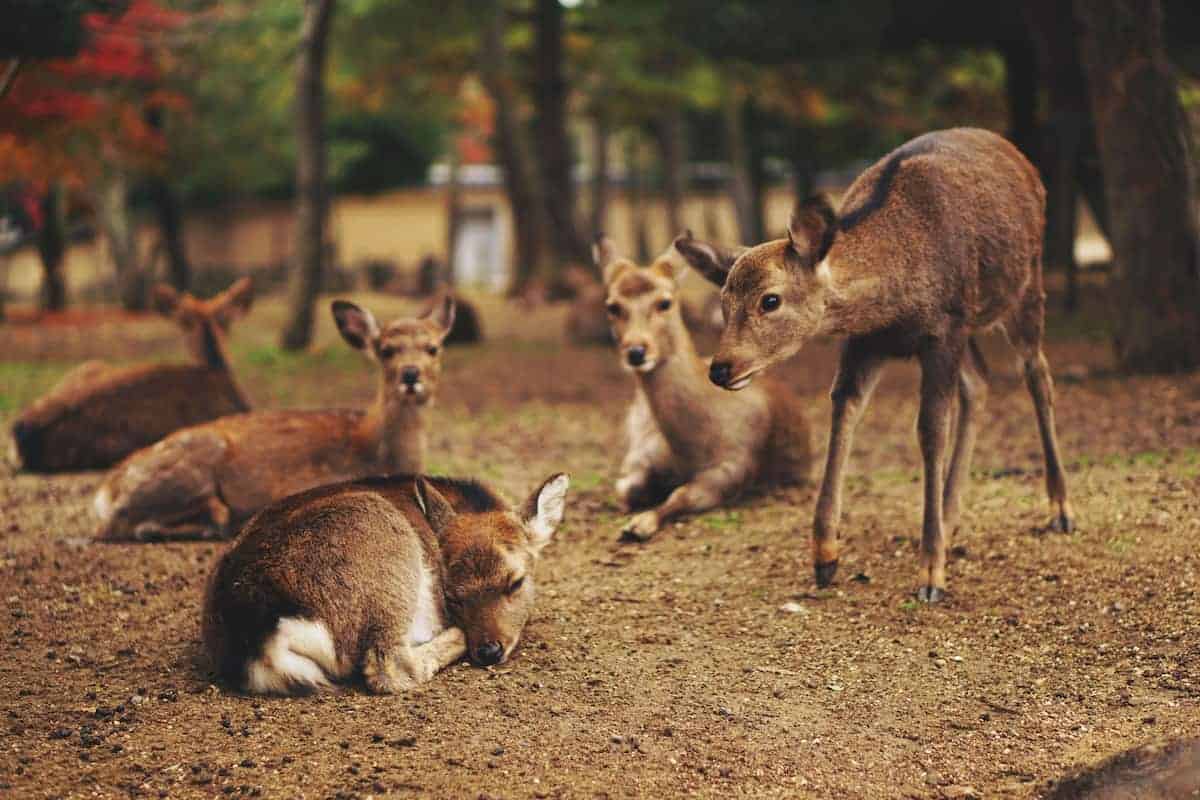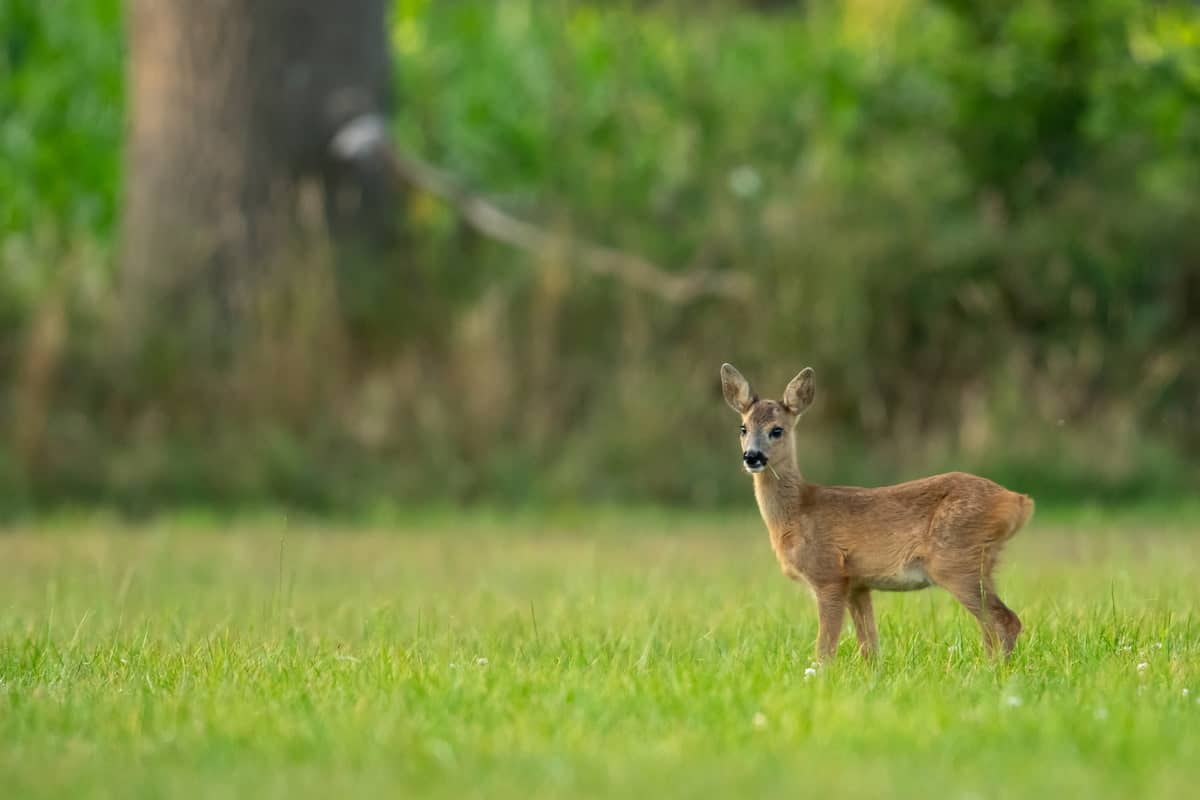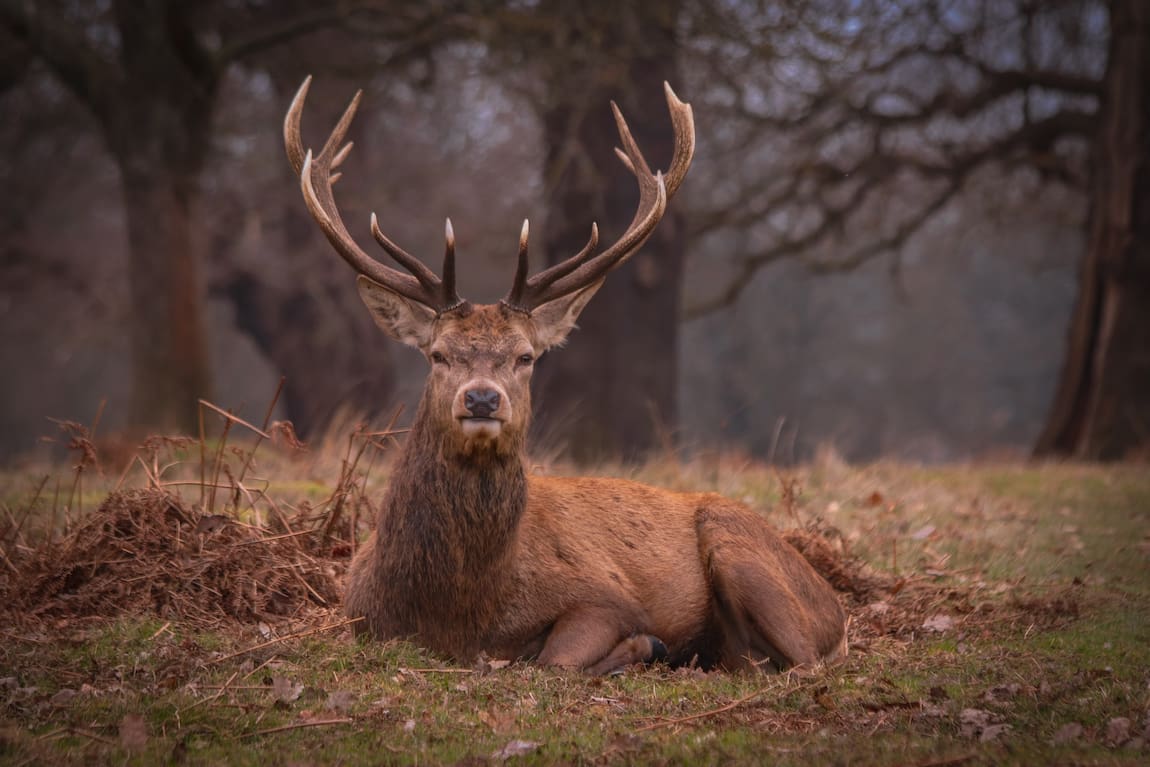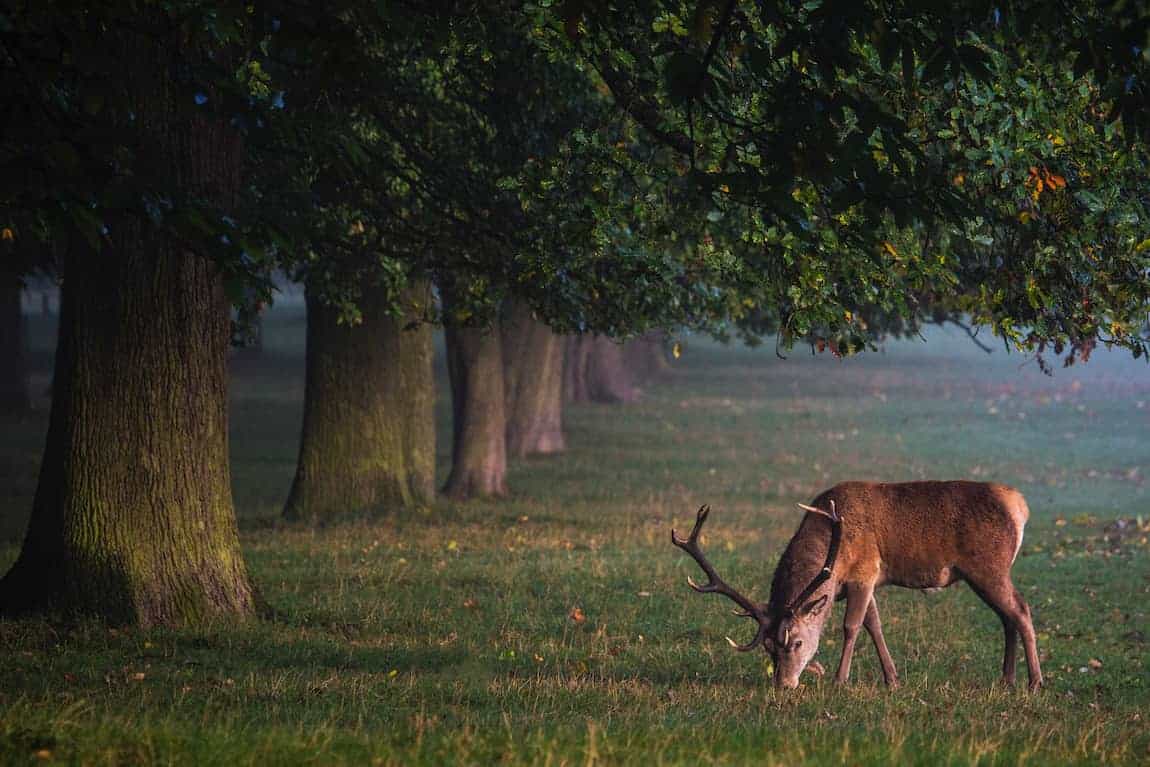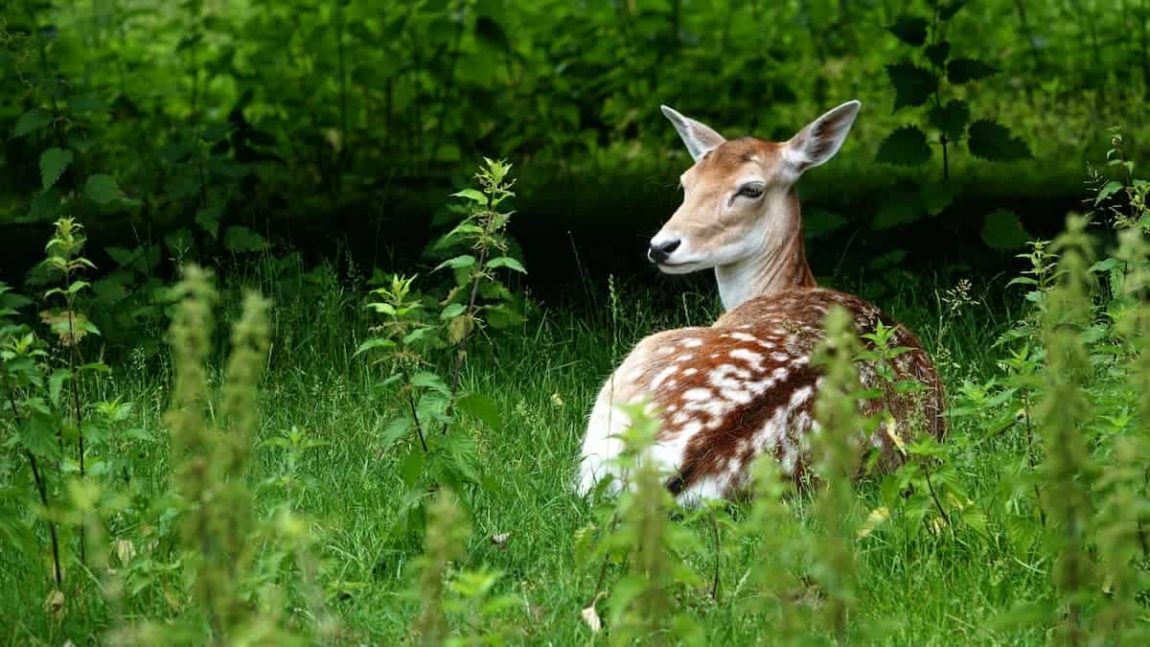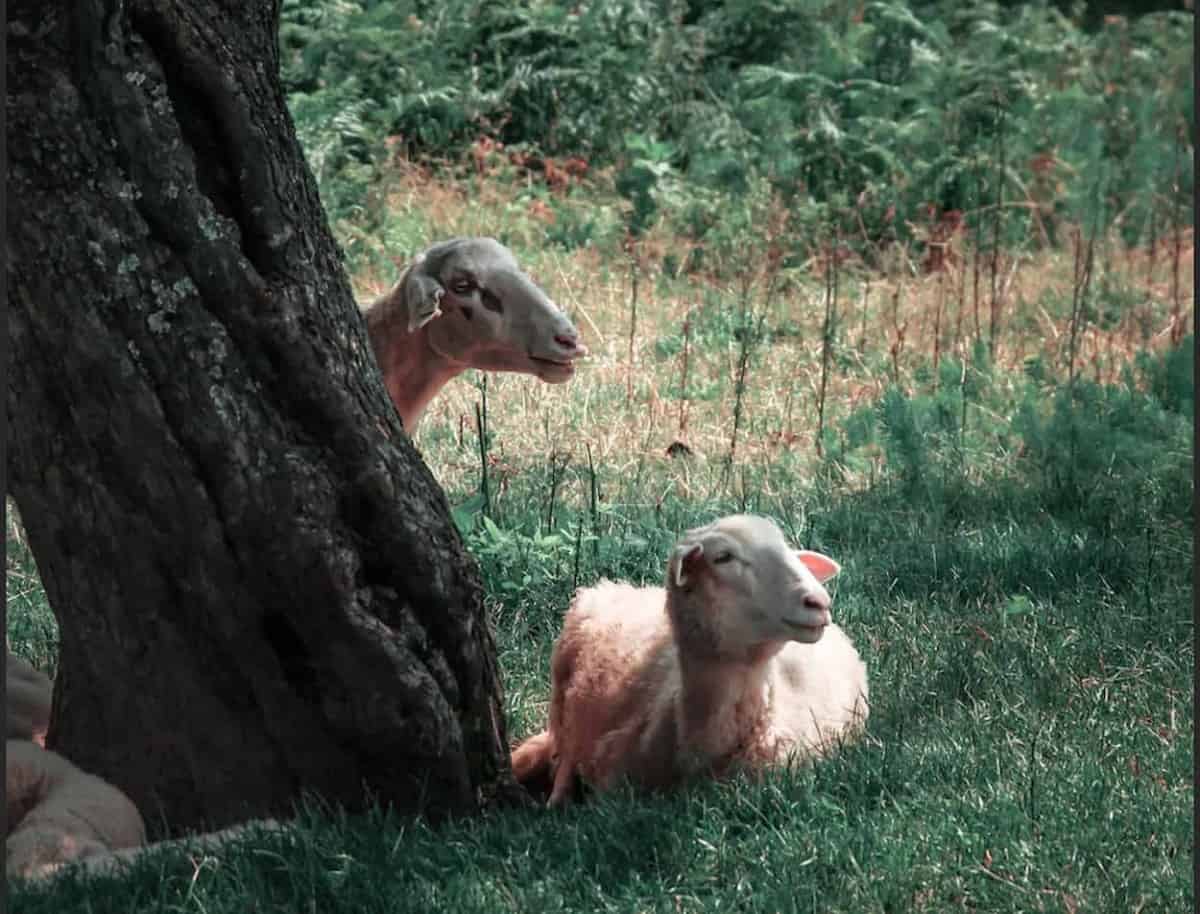Deer are dainty yet majestic creatures with strange sleeping habits compared to humans, but they need their special sleep cycles to protect them from any dangerous predators in the area. This article will discuss all the aspects of whether deer sleep, for how long, where they sleep and the fantastic, beautiful things that deer can do while asleep.
Do Deer Sleep?
Deer, like most animals, need to sleep. However, deer do not sleep in the way that you would think.
Unlike humans, deer do not sleep for hours on end and do not enter REM cycles either. Since deer are nocturnal animals, they do not sleep much during the nighttime but rather have short sleep cycles during the day.
The sleep cycle of a deer relies on many factors, such as the time of year, changes in the weather, their energy levels, and proximity to food.
Deer sleep on the ground, wherever they can find comfortable bedding. While looking for a place to bed, a deer will usually assess three factors before they lie down and enter a sleep cycle:
- Access to food and water, a deer will not bed somewhere unless there is a nearby supply of food or water, as they constantly need enough energy to outrun predators.
- Good coverage is the most important thing for a deer, as tall grasses will help to camouflage them against predators and will help the deer feel safe while sleeping.
- Easy escape routes are vital for deer when choosing a bed to rest in, as they will have to jump up to escape from predators stalking them quickly. Deer will pick beds to sleep in that have entry and exit points; as prey animals, they cannot be stuck somewhere with no escape.
Deer Sleep Cycle
Unlike humans, deer do not sleep deeply for hours. Deer are nocturnal, so they are usually more active during the nighttime when their predators are stalking them.
During the day, however, deer need to rest and recharge. Much like any other prey animal, conserving energy is vital if you need to survive in the wild.
A typical sleep cycle for a deer can last 20 to 30 minutes. During the sleep cycle, the deer will doze off for anywhere between 30 seconds to 3 minutes. Because deer are constantly looking for predators, they can not sleep for the full 30 minutes.
During the sleep cycle, they may wake up and check their surroundings for predators. Sometimes they will need to defecate or urinate before dozing off again.
While 30 seconds to 3 minutes sounds like a tiny amount of time to sleep, if you add up all the sleep cycles of a deer throughout the day, they typically sleep for 12 hours. The amount of sleep they get during the day is crucial to their survival. As their predators are more active at night, they need to rest and recharge to conserve their energy before nightfall.
Are Deer Able To Smell Or Hear While Sleeping?
Deer are amazing prey animals with built-in survival instincts. Not only do they not sleep for long periods, in case predators are lurking nearby, but they also have an exceptional sense of smell and hearing while asleep.
To protect itself and its herd, a deer is entirely aware of its environment while it is sleeping, and any changes the deer notices will jolt them awake in preparation to flee if a predator is nearby.
A deer will usually sleep in a bed facing the direction of the wind so that while they are asleep, they will still be able to pick up on any changes in scent to alert them of stalking predators.
Deer will also sometimes open and close their eyes while asleep, as this confuses any predators watching them and tricks them into thinking the deer is awake and alert.
Do Deer Sleep Alone Or In Groups?
As they are prey animals, deer prefer to sleep in large groups, where the rest of the herd can help look out for and alert the herd to approaching predators.
The more deer there are in a group, will make it easier to notice any changes in the environment or spot predators.
While deer feel safer and more comfortable sleeping with a group, they sometimes sleep alone if they have no other choice. A deer that is alone will need to rest to conserve its energy and recharge, even if it is more dangerous to take a quick nap without a herd watching for predators.
How Do Deer Sleep In The Winter?
Unfortunately, deer can not hibernate in the winter to keep them warm. When the temperature drops in the winter, deer will sleep in a spot with full sunlight to keep them warm.
Deer prefer making beds on south-facing slopes during the winter, allowing them to see approaching predators while providing the warmest ground for their nap.
If no sun is available, deer like to huddle up and take shelter under coniferous trees, such as pine trees. They do this for refuge from the cold and falling snow, and the dense low branches help to trap in heat to keep the deer warm.
Conclusion
Deer do, in fact, sleep, although it is pretty different from how humans sleep. Since deer are prey animals, they must always be as alert as possible to avoid being eaten by predators. Deer have short sleep cycles, allowing them to rest and conserve energy without leaving them vulnerable to lurking predators.
The sleep cycle of a deer lasts 30 minutes, while they doze off for 30 seconds to 3 minutes during the sleep cycle. The deer does not sleep for the full 30 minutes of the cycle, as they need to wake and check their surroundings for predators or to get up and stretch their legs.
